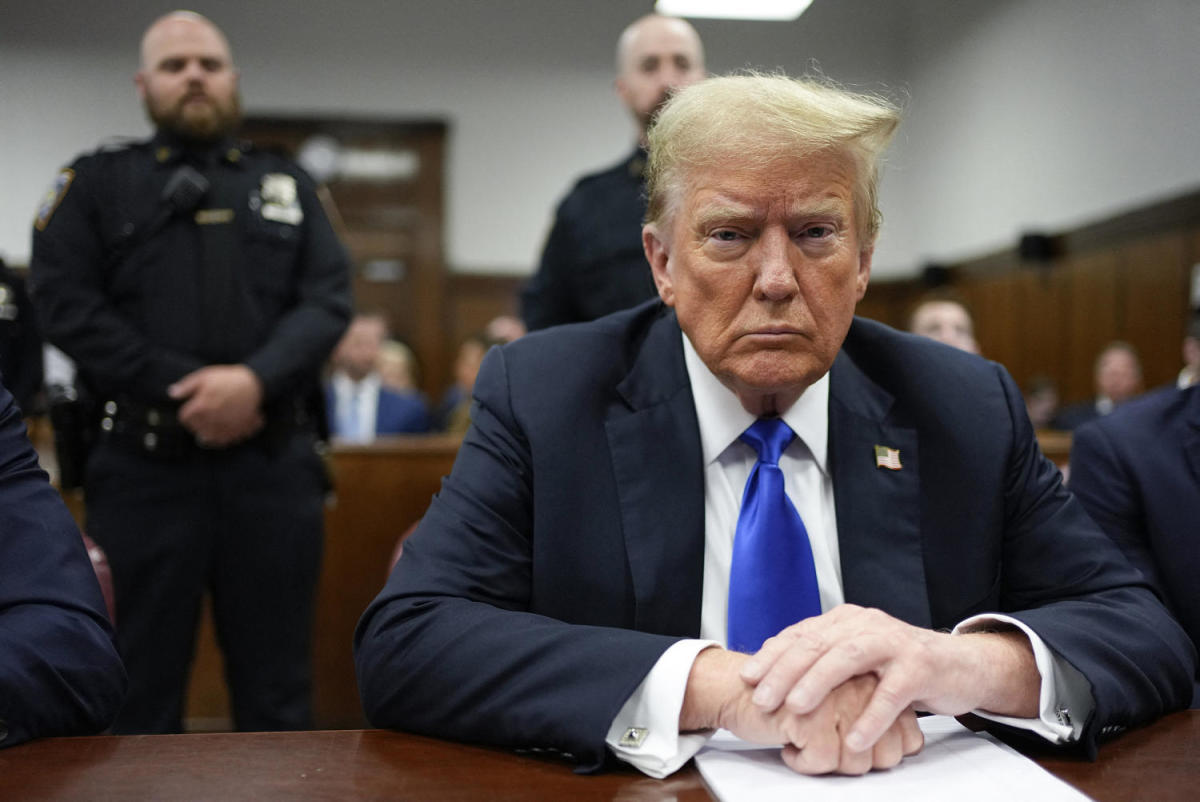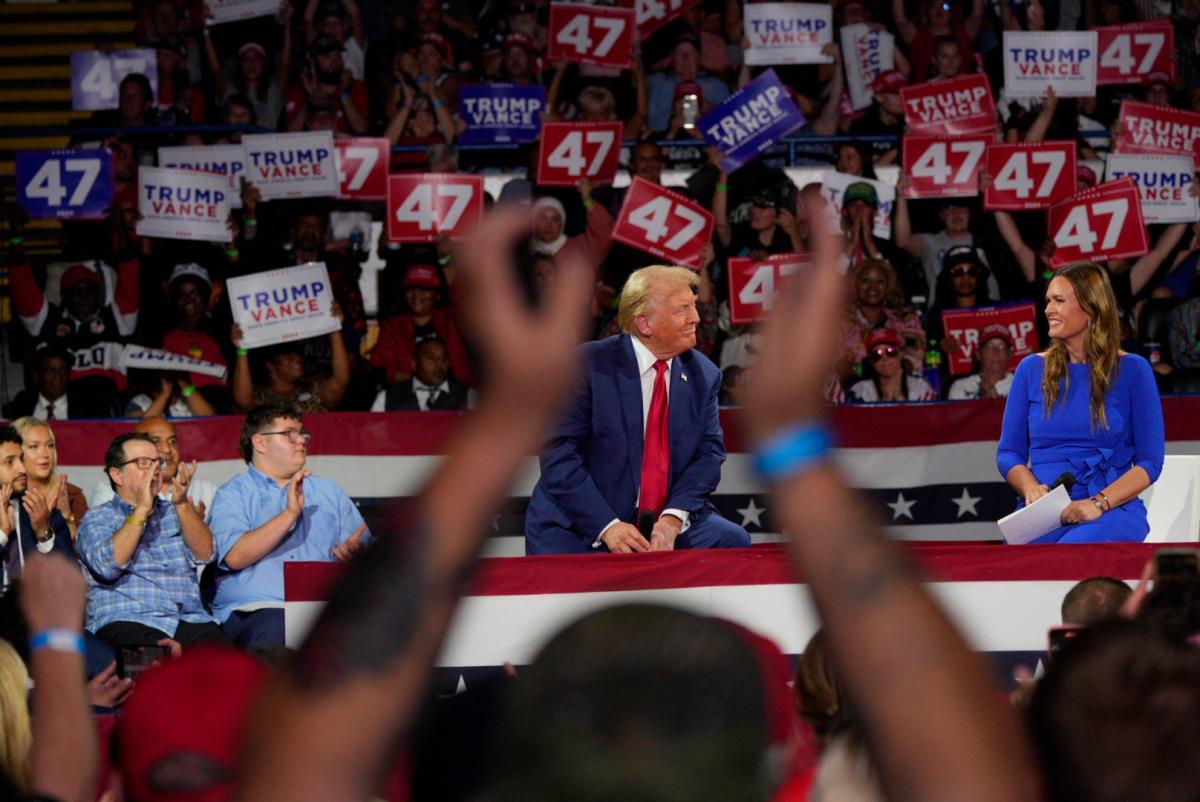UPDATE (Aug. 30, 2024, 5:58 p.m. ET): On Friday, an entry on the federal court docket told Donald Trump’s lawyers that their filing attempting to move Trump’s state criminal case to federal court was deficient, noting that it did not include the opposing party’s consent or the court’s leave to file, which, the docket entry noted, the court had not granted.
Ahead of Donald Trump’s sentencing in his so-called hush money case, which is set for Sept. 18 in New York state court, the former president’s lawyers are attempting once again to move the criminal case to federal court. They lost a previous attempt to do so last year, but that was before the Supreme Court’s July 1 immunity ruling, which they’re now citing as a reason for the case to proceed in a federal forum.
Manhattan District Attorney Alvin Bragg’s office “violated the Presidential immunity doctrine in grand jury proceedings, and again at trial, by relying on evidence of President Trump’s official acts during his first term in Office,” Trump’s lawyers wrote in their federal court filing Thursday. While they more vaguely raised the immunity issue in their failed removal attempt last year, they wrote in this latest filing that they “could not have anticipated the subsequent federal developments culminating in Trump v. United States,” referring to the Republican-appointed Supreme Court majority’s immunity ruling.
That high court decision came in the federal election interference case, where Chief Justice John Roberts’ opinion laid out a vague test for determining which official presidential acts are immune from prosecution, as distinct from private acts that aren’t. Trump’s New York state charges — 34 felony counts of falsifying business records, related to an alleged cover-up of a hush money scheme ahead of the 2016 election — didn’t involve official presidential acts. But the issue the immunity ruling raised for the case stems from another part of the Supreme Court ruling, one that curbed the use of official-act evidence to prove guilt of unofficial acts.
Trump has a pending motion in state court to overturn his May guilty verdicts based on the immunity ruling. Judge Juan Merchan set a Sept. 16 deadline to rule on that issue and is scheduled to sentence Trump two days later, assuming the judge rejects Trump’s immunity claim. But that sentencing date was recently put in doubt when Trump’s lawyers asked Merchan to postpone the sentencing, because they want to immediately appeal if he rejects their immunity claim. Bragg’s office didn’t fully object to the further delay, instead saying it would defer to the judge. Merchan hasn’t yet ruled on whether he’ll adjourn the sentencing; Trump’s federal court filing on Thursday said that the judge had told the parties that he would rule on the defense adjournment request “on or before” Sept. 5.
Now the Sept. 18 sentencing date is further called into question, pending word from federal court about whether the case will proceed there or get kicked back to Merchan. The more important overall issue in the case, however, is whether the guilty verdicts can stand under the Supreme Court’s immunity ruling or prosecutors will need to retry the case. That question may ultimately need to be answered by the high court.
The issue of federal court removal is also at play in the state election interference case in Georgia, where one of Trump’s co-defendants, his former White House chief of staff Mark Meadows, has a pending Supreme Court petition on the matter, in which Meadows also cites the immunity ruling.
Subscribe to the Deadline: Legal Newsletter for updates and expert analysis on the top legal stories. The newsletter will return to its regular weekly schedule when the Supreme Court’s next term kicks off in October.
This article was originally published on MSNBC.com

Amanda Smith is a dedicated U.S. correspondent with a passion for uncovering the stories that shape the nation. With a background in political science, she provides in-depth analysis and insightful commentary on domestic affairs, ensuring readers are well-informed about the latest developments across the United States.







